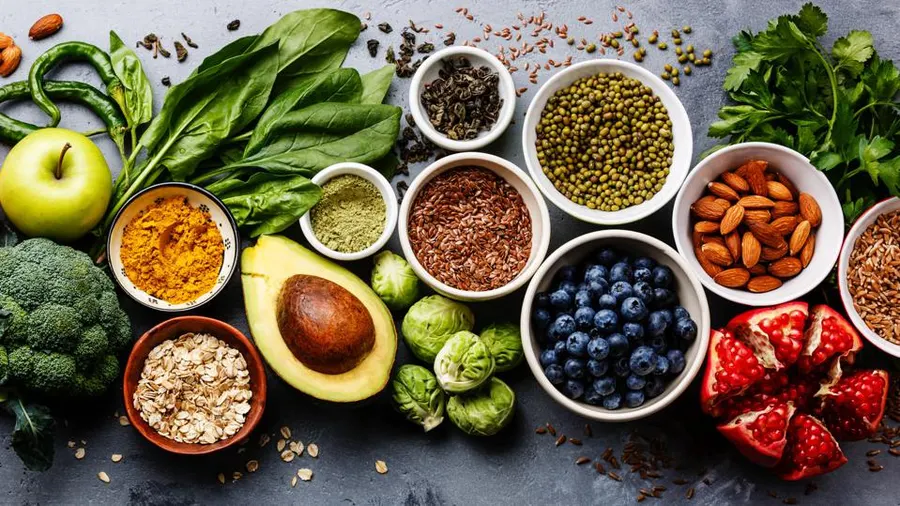Healthy eating habits include a balanced diet, which includes foods from all five food groups. It also helps reduce the risk of chronic (long-term) diseases like type 2 diabetes and heart disease.
Healthy food choices do not need to be complicated or restrictive. You can still enjoy your favorite foods, just be mindful of their calories and fat content.
Eating a variety of foods
Eating a variety of foods from the five major food groups gives you many different nutrients that promote health and reduce your risk for disease. It also helps you maintain or lose weight and have the energy to be physically active.
A healthy diet includes low-fat dairy, whole grains, fruits and vegetables, and lean proteins. It also limits added sugars, salt and saturated fats. It is recommended that you eat at least 5 servings of a variety of fruit and vegetables every day.
Eating less junk food
Eating less junk food can help you avoid health problems like high blood pressure, tooth decay and osteoporosis. It can also improve your energy levels and mood. Eating property foods will give you the nutrients you need for a strong body and healthy brain.
The best way to start changing your eating habits is by choosing a reason that matters to you. Write down your reasons and look at them often to keep you motivated.
Eating more fruits and vegetables
It is recommended that adults eat at least five servings of fruit and vegetables per day. This is to ensure a good source of nutrients and phytochemicals.
Studies have shown that people who eat more fruits and vegetables are less likely to suffer from cancer, heart disease, and respiratory diseases. They also tend to live longer than those who do not eat enough fruits and vegetables.
Try to eat fruits and vegetables raw, as they contain many important nutrients. However, if you are on a tight budget, frozen or canned vegetables can be just as healthy as fresh ones.
Eating more whole grains
All grains contain fiber, protein and healthy fats. Choose whole grains – like wheat, oats, brown rice and wild rice – for a variety of recipes.
Whole grains have been linked to a lower risk of heart disease, certain cancers and diabetes and help you maintain a healthy weight. Look for the “Whole Grain” stamp on food labels or make your own grains at home, like a barley, wild rice and brown rice pilaf.
Eating less fat
The right choice of foods is a key to a healthy life. Poor diet can lead to obesity, health problems, high blood pressure, and more. It can also result in a decrease in your life expectancy.
The good news is that it’s not hard to switch to a healthier diet. You can start by making simple changes, such as eating less fat and adding more fruits and vegetables.
Eating more protein
Protein is found in many foods, including meat, fish, dairy, beans and nuts. Eating enough protein is important for healthy eating and can help keep muscles strong.
However, too much protein can also be unhealthy. People who eat very high protein diets may have a higher risk of kidney stones and cancer, especially if the proteins come from animal sources. Limiting animal products and adding in more plant-based proteins can help reduce the risks.
Eating less sugar
Eating less sugar can help prevent tooth decay and gum disease. It can also reduce the risk of fatty liver disease. It can even increase energy levels and improve moods.
Changing eating habits can feel daunting, but it doesn’t have to be all or nothing. Begin by setting a goal that is realistic for you.
Try keeping a food diary to evaluate your eating patterns. This will help you identify cues that lead to unhealthy eating.
Eating less salt
Excessive salt intake causes hypertension and increases the risk of heart disease and stroke. Choose foods low in salt. Reduce the amount of salt added when cooking, use reduced-sodium condiments and salad dressings, and consume fewer packaged ready meals.
Cutting back on salt doesn’t mean food will taste bland. In fact, your taste buds will get used to less salt and you may start craving it less. It is also important to choose healthier options when eating out.
Eating more water
Water is important for several body functions, including carrying nutrients and oxygen to cells and regulating body temperature. Drinking adequate amounts of water may help you feel full and eat less. Eating healthy doesn’t have to be boring or flavorless. Try adding fruits and vegetables, whole grains, lean protein, healthy fats, and low-fat dairy to your meals. Make healthy eating a habit by getting family and friends on board.
More information newswidely.com



